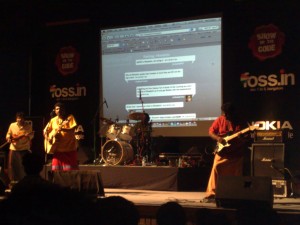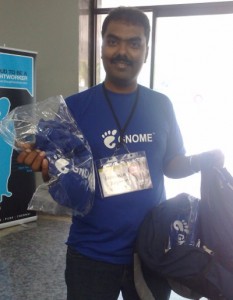 We are were supposed to use a proprietary webservice to hand in a paper:
We are were supposed to use a proprietary webservice to hand in a paper:
You should also upload the essay to turnitin.com using the password key:
5vu0h5fw and id: 2998602
Late entries will suffer a penalty.
I cannot use this service. The simplest reason being that I cannot agree to their ToS.
Let me clarify just by picking some of their points off their ToS:
By clicking the “I agree — create profile” button below You: (1) represent that You have read and understand
As I am not a native speaker of neither English nor law-speak, I cannot agree that I fully understand those ToS.
With the exception of the limited license granted below, nothing contained herein shall be construed as granting You any right, […]
Whatever that means, it sounds scary to me.
You further represent that You are not barred from receiving the Services or using the Site under the laws of the United States or other applicable jurisdiction.
I am sorry but I do not know whether this holds for me.
You may not modify, copy, distribute, transmit, display, perform, reproduce, publish, license, create derivative works from, transfer, or sell any information, Licensed Programs or Services from the Site without the prior written consent of iParadigms,
Lucky me, that I did not agree to their ToS yet so that I can copy them and bring them up here…
You further agree not to cause or permit the disassembly, decompilation, recompilation, or reverse engineering of any Licensed Program or technology underlying the Site. In jurisdictions where a right to reverse engineer is provided by law unless information is available about products in order to achieve interoperability, functional compatibility, or similar objectives, You agree to submit a detailed written proposal to iParadigms concerning any information You need for such purposes before engaging in reverse engineering.
I seriously do not want to write a proposal to this company for every new website I will build just because they use a <form> or some AJAX.
You are entirely responsible for maintaining the confidentiality of Your password
I cannot do that because I do not even know how they store my password (we are talking about an ASP program after all…).
You agree to use reasonable efforts to retain the confidentiality of class identification numbers and passwords. In no circumstance shall You transmit or make Your password or class identification number or any other passwords for the Site or class identification numbers available in any public forum, including, but not limited to any web page, blog, advertisement or other posting on the Internet, any public bulletin board, and any file that is accessible in a peer-to-peer network.
Yeah, sure. Nobody will find it on the page itself anyway.
This User Agreement is governed by the laws of the State of California, U.S.A. You hereby consent to the exclusive jurisdiction and venue of state and federal courts in Alameda County, California, U.S.A., in all disputes arising out of or relating to the use of the Site or the Services.
Might sound weird, but I do not want to be arraigned in the USA.
You agree not to use the Site in any jurisdiction that does not give effect to all provisions of these terms and conditions, including without limitation this paragraph.
Of course, I do not know enough about this jurisdiction to agree to those ToS.
Needless to say, that I do not want my data to fall under the American 9-11 Patriot Act.
Besides the above mentioned legal issues, I also have ethical concerns to contribute to the profit of a dodgy company by providing them my written essay so that they can use that to check other works against mine. If I believed in copyright, I could probably claim infringement as well.
Other topics, such as the violation of the presumption of innocence, are covered by resources on the web. And there is plenty of it. The most interesting ones include this and this.
Admittedly, I could care not as much as I do, but being an academic also means to think critically.
I more or less sent this email to the lecturer and it turned out that it’s not compulsory to use this dodgy service! *yay*
The future, however, is not safe yet, so more action is needed…







